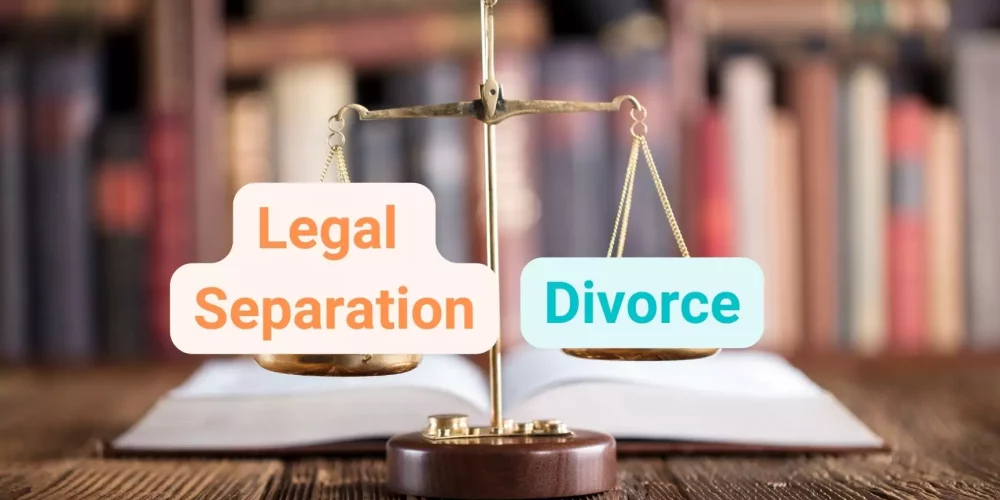Did you know that in America, one divorce happens every 36 seconds?
If you are trying to decide whether you should get a legal separation vs divorce, understanding the difference can help you decide.
That is why today, we have created this quick guide to help you understand the exact difference between a divorce and a legal separation.
Keep reading to learn more!

What Is a Legal Separation?
In a legal separation, there is not an end to the marriage. However, a legal separation does allow you to live separately from your partner while you remain married.
While a legal separation is not as common as a divorce is, it can be helpful to partake in a legal separation if you and your spouse are still interested in working on problems that are affecting the marriage.
When you and your spouse are legally separated, the court will enter orders that divide your property, address child-related issues, etc. In a legal separation agreement, the same issues that are covered in a divorce will be addressed.
For example, if you have children, it will be outlined how much child support needs to be paid. Custody will also be outlined in the agreement that you and your partner come up with.
Legal separation allows you to still be married legally while continuing to live separate lives. A legal separation will address child support, child custody, spousal support, visitation schedules, marital debt, and marital assets.
Some people prefer this to maintain health insurance or for religious reasons.
What Is a Divorce?
A divorce is the legal termination of a marriage. In Colorado, you do not need a reason to obtain a divorce as it is a “no-fault” divorce state.
Why You May Consider Legal Separation Over a Divorce
After you file for a legal separation, it is always possible for you to convert it to a divorce. However, there are some reasons why you may want to consider a legal separation over a divorce. These reasons include:
- A divorce goes against many religions
- You may continue to be eligible to receive your spouse’s government benefits
- It may protect your health care benefits
- You and your spouse may believe that there is a chance for you to reconcile your marriage after you’ve spent some time apart
- You may find it less stressful to negotiate a separation agreement rather than a divorce
Before you decide to file for divorce or legal separation officially, you should take the time to weigh the advantages and disadvantages of both options.
Understanding the Differences Between Legal Separation vs Divorce
Both a legal separation vs divorce offer spouses useful and valid options when you are attempting to handle a marriage that is struggling. Take the time to weigh your options and decide which is most comfortable for your current situation.
Are you looking for the help of an experienced legal separation attorney in Denver? Click here to contact us today with any questions that you have.
